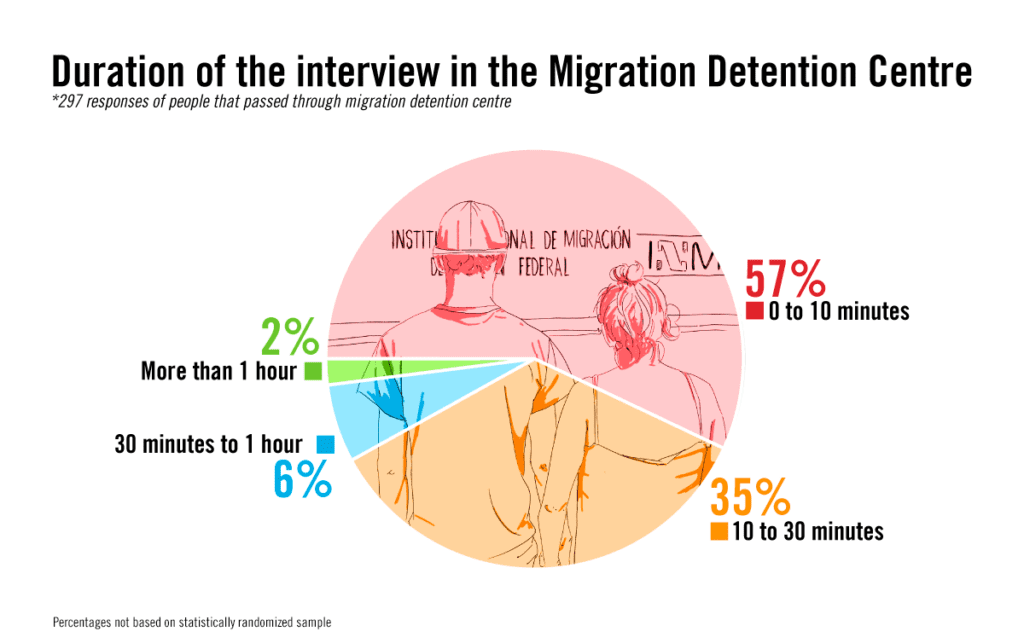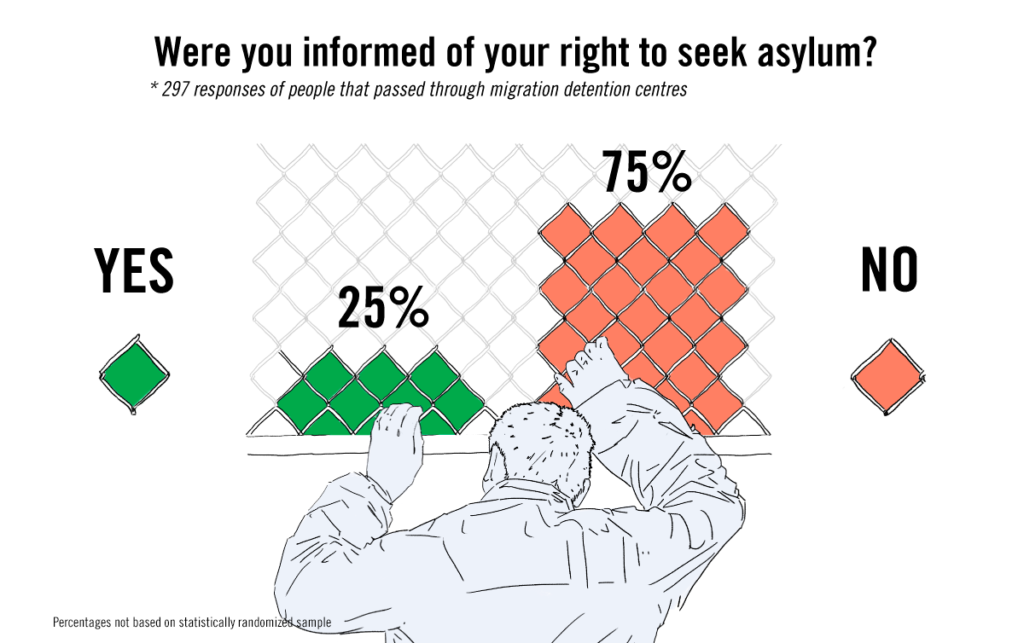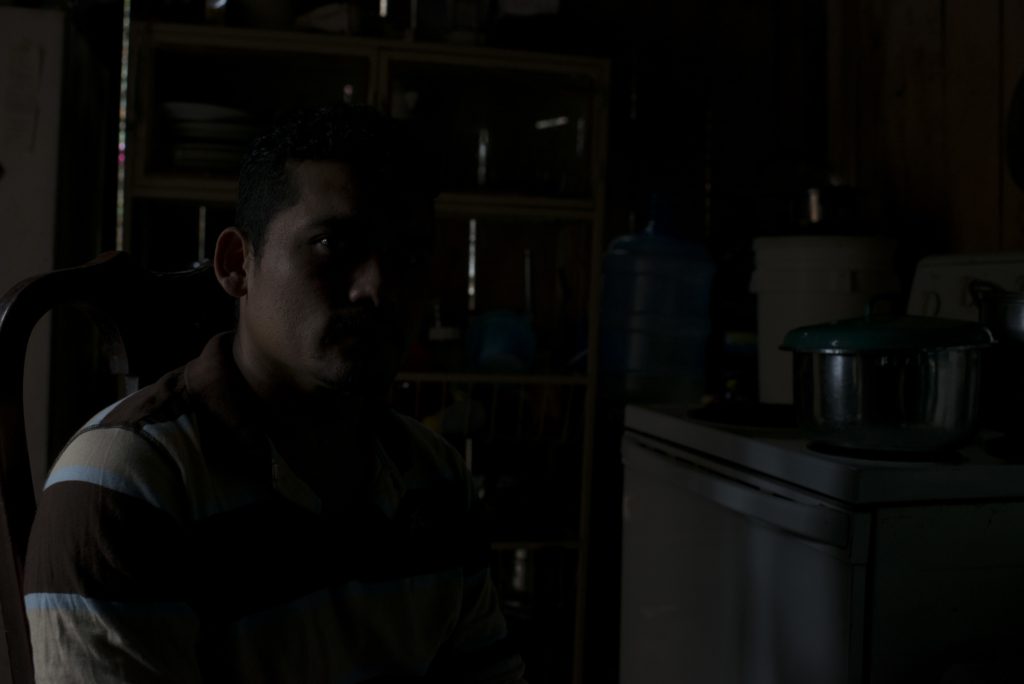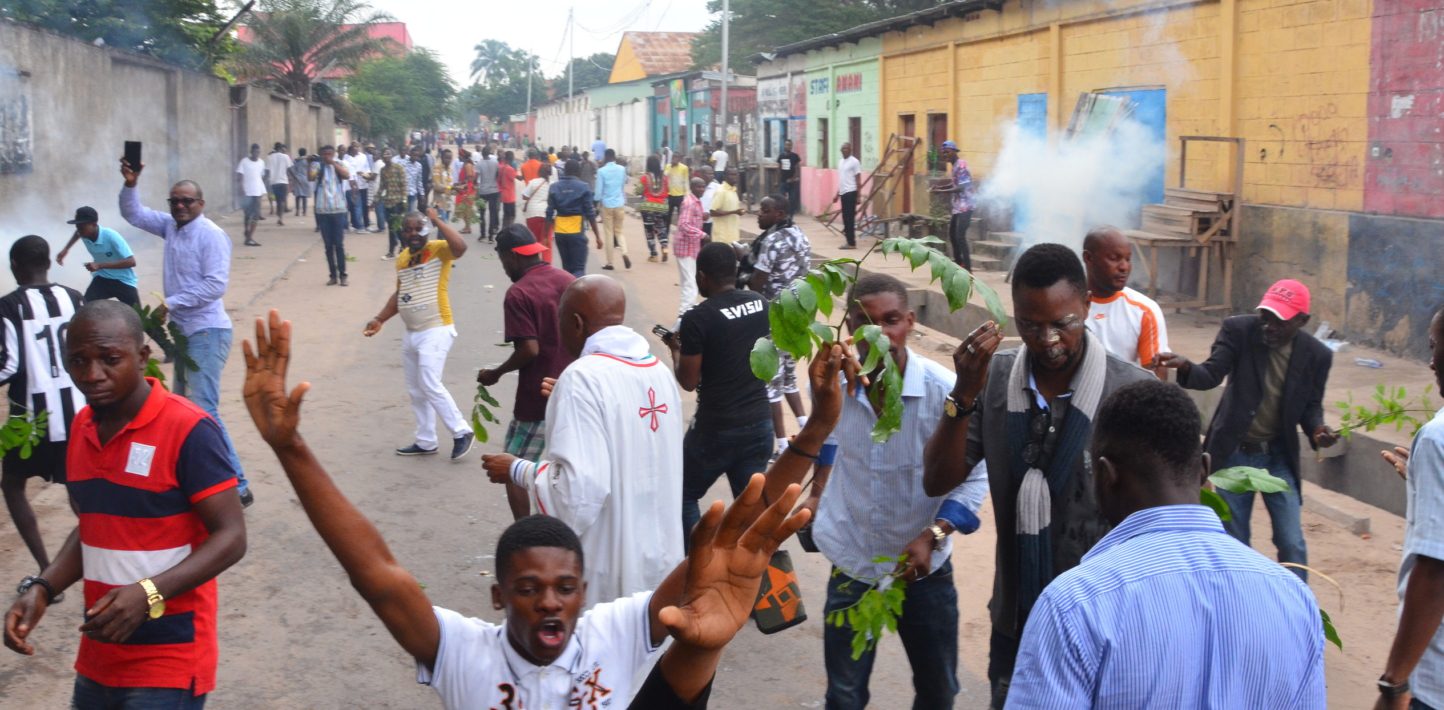Mexico illegally returns thousands of people to life threatening situations in Honduras, Guatemala and El Salvador each year. This practice is called refoulement and is illegal under international law.
Thousands of Guatemalans, Hondurans and Salvadorans are fleeing from death threats, attacks and extortions from powerful gangs that control large parts of territory in their counties. These people have to make a dangerous journey to seek protection in Mexico. They are often misinformed by M (INM) about their rights to seek asylum in the country.
Many people encounter INM officials who mock them, don’t ask or care about why they left their countries and push them back to a situation where death could be imminent.
This is against the law in Mexico.
Emilia: Sent back to death
I had just started preparing dinner on the afternoon of the day that José Ernesto*, my first son, was killed. It was September 4, 2009, he was 17 years old
Emilia recalls as she tells the story of the long journey she and her family had to go through before they found safety.
José Ernesto was the first family member that Emilia lost to violence in her home country of El Salvador, but he was not the last.
Emilia fled El Salvador and arrived in Mexico in late 2016 with her 7 children. When they arrived, Emilia’s eldest daughter went into labour and Emilia had her first granddaughter.
Days later, Emilia returned to the hospital to carry out some paperwork of her new granddaughter. On her way, migration officers stopped her. Emilia pleaded to Mexican migration officers not to return her to El Salvador where her life was at risk. INM agents ignored her pleas, locked her up and then deported her.
What happened to Emilia is not rare. Mexico is witnessing a hidden refugee crisis, in which, people no longer pass through Mexico in search of economic opportunities; they are leaving due to fear for their safety.
People fleeing from Central America to Mexico looking for protection are often deported even though international and Mexican law says that it is illegal for Mexico to send them back. These illegal deportations are called refoulement.
Between May and September 2017, we carried out an interview-based survey collecting 500 different experiences, documented in our report “Overlooked, Under-Protected,” that shows that Mexican authorities are constantly sending people back to life threatening situations in their countries, was published.
The INM agent said to me: now that you've been detained, you're screwed and you're gonna get deported to your country.
Honduran man describing the response from a migration agent when he expressed his fear of returning
More than half of the people that answered the survey (310) said Mexican migration authorities had detained them. The vast majority of these, 84% of them, do not want to be returned to their countries. The main reason: violence and fear.
What migration authorities in Mexico say they are doing, and what the reality is for people seeking protection
The National Institute of Migration (INM) is the federal government body responsible for regulating migration through the country.
By law, INM has to inform any person they stop or detain of their right to seek asylum in Mexico and send those that express their intention to seek asylum to Mexico’s refugee agency, the Comisión Mexicana de Ayuda a Refugiados (COMAR). Officials of the Institute have assured us that the requirement is complied with.

Falling through the cracks: Failures in the System
In reality, the implementation of the law for people coming from Central America looks nothing like it should be.

A hundred and twenty people´s testimonies, indicated that illegal deportations took place. Their testimonies involved people explicitly asking to get asylum or expressing fear for their lives in their country of origin, yet being ignored and deported.
75% of those detained in immigration detention centres by INM (297) were not informed of their right to seek asylum in Mexico.

Saúl*: Murdered three weeks after being illegally deported
Saúl was a bus driver in Honduras. In November 2015, Saúl suffered an armed attack in which two of his sons were seriously wounded, after that, he fled to Mexico to apply for asylum. The COMAR rejected his application in the summer of 2016 arguing that he had options for security in his country. The INM deported him and soon after, Saúl was killed.

Sent back “voluntarily”
People detained and transferred to detention centres in Mexico have to sign a number of papers, one of which states that they accept a “voluntary return” to their countries. Once a person signs this document, they are unable to claim asylum.
People told us that they were frequently pressured into signing this “voluntary return” paper.
The INM official in the detention centre said “if you don't sign here, [my voluntary return paper], we won't give you food, you won't be able to have a shower. We will treat you like you don't exist
23 year old Honduran man in the detention centre in Acayucan, Veracruz, in 2017
The reality is that the INM has a long way to go before it fulfils the obligations that they declare they are already complying with. The authority has to ensure, that laws are not only in place, but that they are implemented properly so that people are not sent back to their possible death.
Ask the INM to welcome refugees and protect the rights of those fleeing violence to look for asylum.
Learn more about refoulement in Mexico by reading our new report, Overlooked, Under-Protected.


